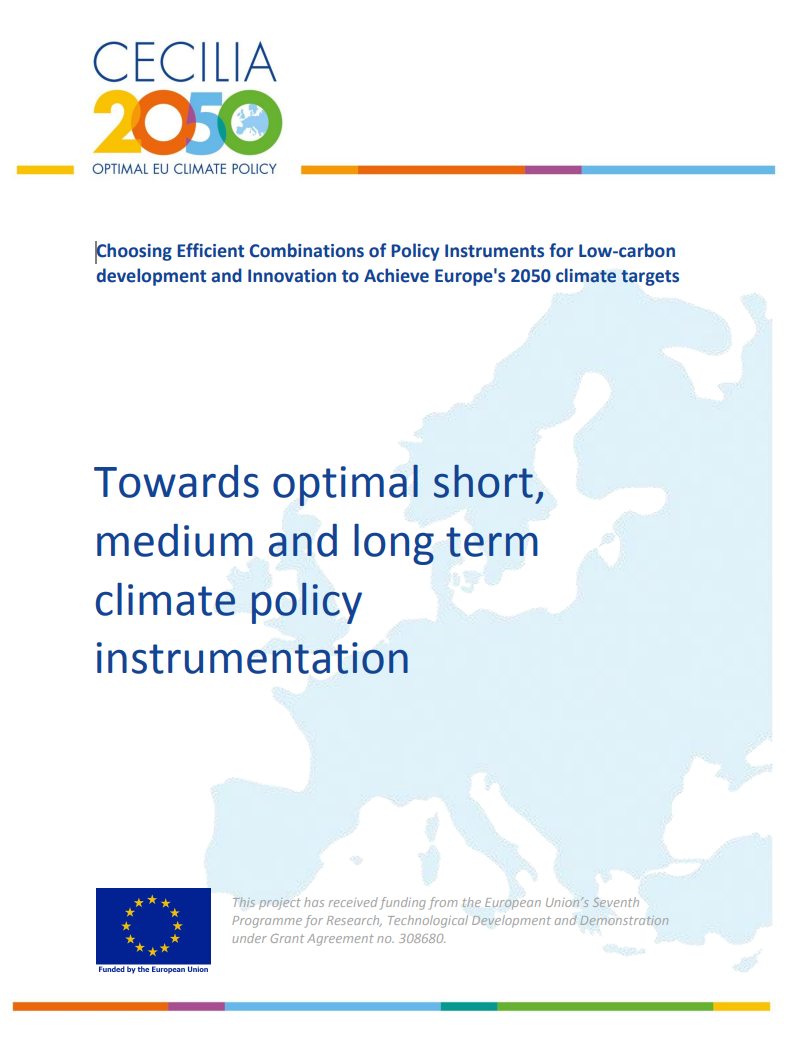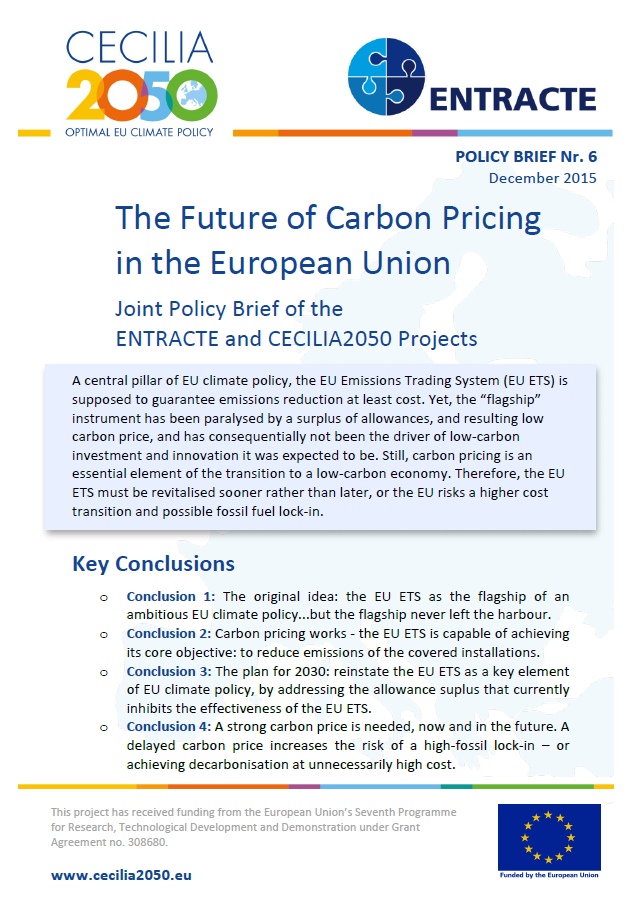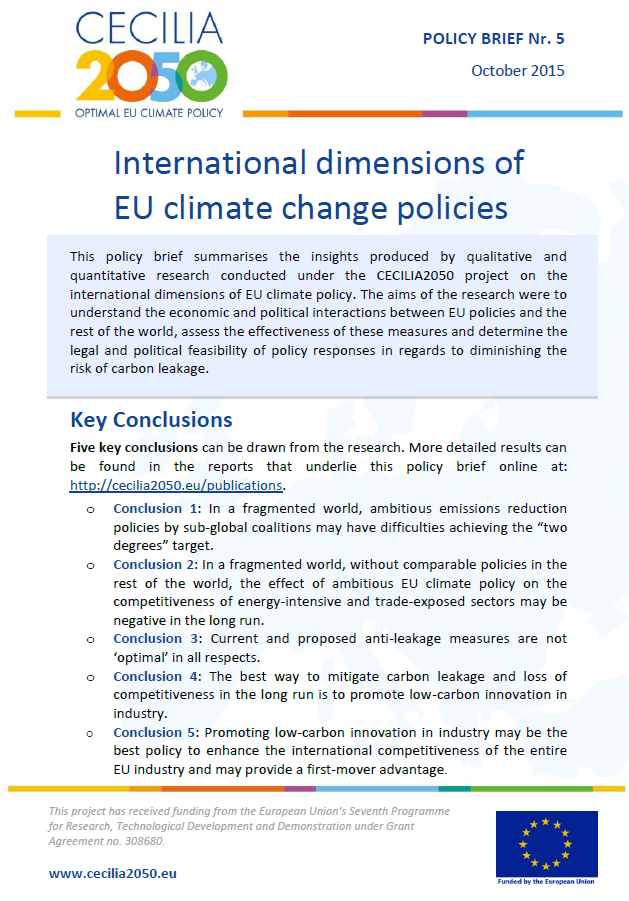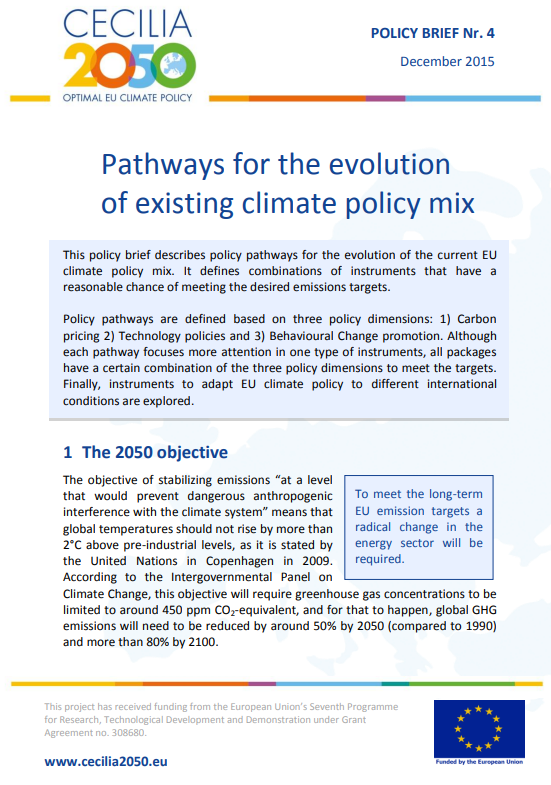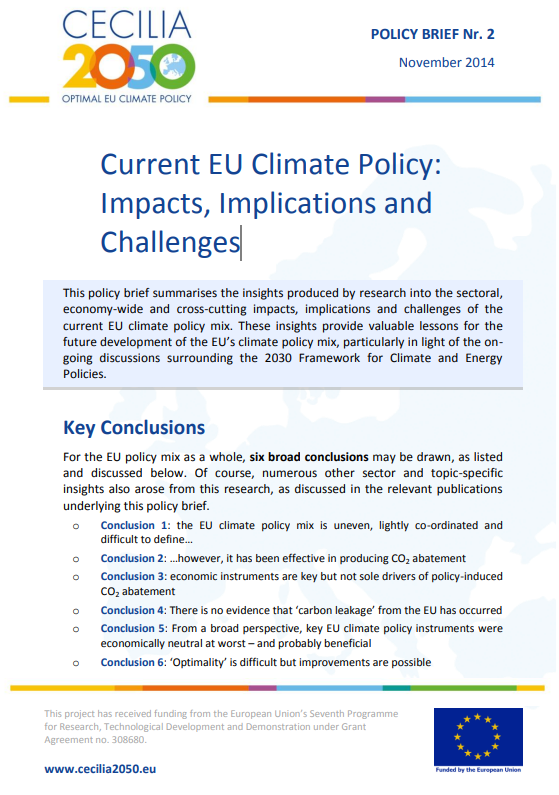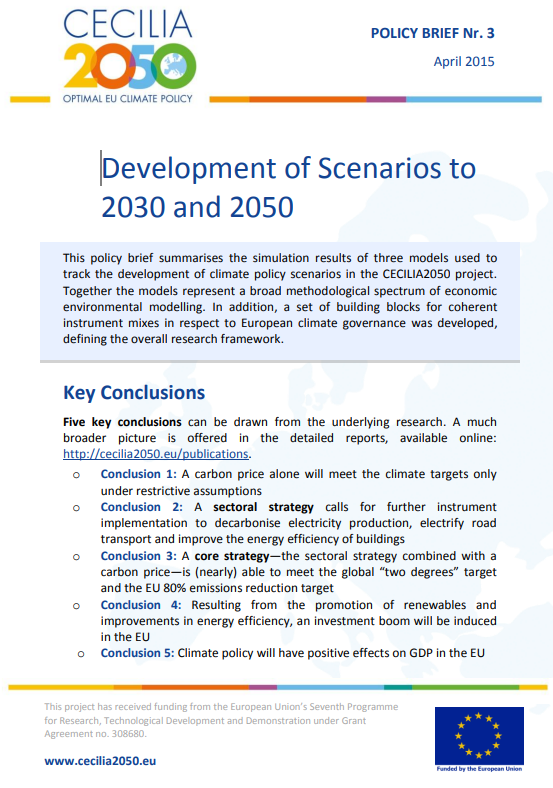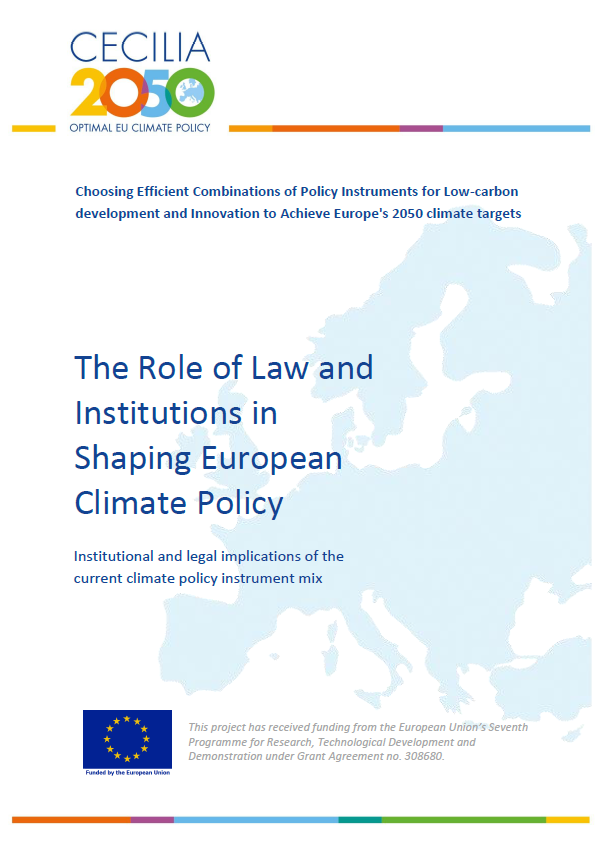Climate Policies and the Transport Sector
Analysis of Policy Instruments, their Interactions, Barriers and Constraints, and Resulting Effects on Consumer Behaviour
- Publikation
- Zitiervorschlag
Máca, Vojtěch et al. 2013: Climate Policies and the Transport Sector. Analysis of Policy Instruments, their Interactions, Barriers and Constraints, and Resulting Effects on Consumer Behaviour.
Im Rahmen des Projekts CECILIA2050, das Politikinstrumente zur Verbesserung der EU-Klimapolitik untersucht, wird in diesem Bericht das Reduktionspotential von Treibhausgasemissionen im Transportsektor analysiert. Die Autorinnen und Autoren geben einen Überblick über die Politikinstrumente in diesem Sektor und beleuchten Grenzen der Kohlenstoffbepreisung.
Der Bericht steht zum Download zur Verfügung.
- Sprache
-
Englisch
- Autorenschaft
-
Vojtěch MácaMarkéta Braun KohlováJan NovákMilan Ščasný
- Finanzierung
-
Europäische Kommission, Generaldirektion Forschung & Innovation (GD Forschung & Innovation), International - Jahr
- Umfang
- 151 S.
- Projekt
- Projekt-ID
- Inhaltsverzeichnis
-
Gesamtes Inhaltsverzeichnis
Executive Summary
1. Policy Instruments in the EU transport sector - an overview
1.1 Interactions and policy mixes
1.2 Road transport
1.3 Non-road modes
1.4 Effectiveness of instruments
1.5 Cost-effectiveness
1.6 Concluding notes2. American vehicle emission regulation schemes
2.1 Recent developments
2.2 Policy assessment3. Review of transport elasticity
3.1 Transport demand and elasticity
3.2 Patterns in the observed elasticity values
3.3 Selected individual elasticities
3.4 Specific estimates and modelling process
3.5 Trends in price and income elasticities4. Limits to carbon pricing in the road transport sector: barriers, constraints, and path-depndencies
4.1 Fuel tourism
4.2 Company car tax policies
4.3 Second hand car markets
4.4 Conclusions5. Soft transportation policy measures
5.1 Mobility management / Soft transport policy measure - the definition
5.2 Are soft policy measures effective? The evidence
5.3 Long-term effects
5.4 The effects of individual policy design
5.5 Known biases and limitations in the empirical evidence gathered
5.6 What is needed: agenda for future research
5.7 Prospective theory of behavioural change - major requirement for applicable knowledge
5.8 Summary of policy relevant findings - elevator6. Total cost of ownership of electric vehicles under various incentives
6.1 Introduction
6.2 Methodology
6.3 Results
6.4 Discussion
6.5 Conclusion
6.6 Appendix7. Valuation of individual preferences for low-carbon passenger vehicles - a review
7.1 Introduction
7.2 Review of European valuation studies
7.3 Willingness to pay for vehicle attribute
7.4 Conclusions8. References
- Schlüsselwörter
-
CECILIA2050, Klimapolitik, Carbon Pricing, Transport, Treibhausgasemissionen, Steuern, Luftverschmutzung, KlimawandelEU, Europäische Union
Ein Instrumentenmix für die Klimapolitik der EU bis 2050 (CECILIA2050)
- Dauer
-
-
- Finanzierung
-
Europäische Kommission, Generaldirektion Forschung & Innovation (GD Forschung & Innovation), International
